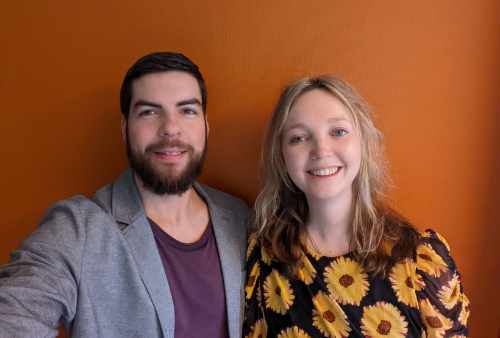Effective communication with your psychedelic guide is crucial for a transformative and fulfilling session. By establishing trust and connection, navigating challenging emotions, and focusing on integration and reflection, you can enhance the depth of your experience. Here are key takeaways to keep in mind:
Key Takeaways
- Create a safe and comfortable environment for open dialogue.
- Practice active listening to show empathy and understanding.
- Set clear intentions to guide the session towards your goals.
- Use emotional regulation techniques to manage intense feelings.
- Engage in mindful integration practices to process and learn from the experience.
Establishing Trust and Connection
Creating a Safe Environment
The foundation of a fulfilling psychedelic session lies in the establishment of a safe and secure setting. A safe environment allows for vulnerability and openness, which are crucial for a deep and meaningful experience. To achieve this, both the guide and the participant must contribute to creating a space that feels comfortable and reassuring.
- Communicate boundaries clearly to ensure mutual understanding and respect.
- Personalize the setting with items that provide comfort and a sense of security.
- Minimize distractions to maintain focus and presence during the session.
It’s essential to remember that a safe environment is not just about the physical space, but also about the emotional and psychological atmosphere that is co-created by the guide and the participant.
By taking these steps, you can help foster a space where exploration and transformation are possible, setting the stage for a session that is both profound and healing.
Active Listening
Active listening is a cornerstone of effective communication with your psychedelic guide. It involves fully concentrating, understanding, responding, and then remembering what is being said. Active listening can help build a deeper connection between you and your guide, ensuring that your needs and concerns are fully understood and addressed.
- Reflect back what you hear to show understanding.
- Ask questions to clarify and deepen your comprehension.
- Avoid interrupting the guide, allowing them to express their thoughts fully.
By practicing active listening, you create a collaborative atmosphere where both you and your guide contribute to the session’s success. This mutual engagement paves the way for a more personalized and impactful experience.
Setting Intentions
Before embarking on a psychedelic journey, setting clear intentions is crucial. It’s a process that helps both you and your guide understand the direction and purpose of the session. Intentions act as a compass, guiding your experience towards personal growth, healing, or exploration.
- Reflect on what you wish to achieve or confront
- Consider any specific questions you want to explore
- Think about how you want to feel during and after the session
Setting intentions is not about predicting the outcome but about aligning your mindset with a purposeful direction for the journey ahead.
Remember, the intention should be open-ended enough to allow for the unpredictable nature of psychedelic experiences. It’s a starting point that can evolve as the session progresses, providing a framework for your guide to support you effectively.
Navigating Challenging Emotions
Emotional Regulation Techniques
During a psychedelic session, emotions can be amplified and may become overwhelming. Emotional regulation techniques are essential to maintain a sense of control and safety. These techniques can help you navigate the psychedelic experience without becoming consumed by strong emotions.
- Breathing exercises: Deep, controlled breaths can calm the nervous system and reduce anxiety.
- Mindfulness: Staying present can prevent spiraling into negative thought patterns.
- Grounding: Focusing on physical sensations can help you stay connected to the present moment.
Remember, the goal is not to suppress emotions but to manage their intensity. By practicing emotional regulation, you can observe your feelings without being overpowered by them.
Discussing these techniques with your guide before the session can prepare you for their use. Your guide can also help you identify which techniques work best for you and remind you to utilize them during the session if needed.
Encouraging Self-Reflection
Self-reflection is a pivotal aspect of any psychedelic session, as it allows individuals to delve deeper into their subconscious and uncover insights that might otherwise remain obscured. Guides can facilitate this process by asking open-ended questions that prompt introspection and personal exploration.
- Reflect on the emotions that surfaced during the session.
- Consider the thoughts or memories that were most prominent.
- Explore any recurring themes or symbols that appeared.
Encouraging self-reflection helps in forming a more coherent narrative of the psychedelic experience, which is crucial for personal growth and understanding.
It’s also beneficial for the guide to provide a framework for reflection that can be used both during and after the session. This might include a series of questions or prompts that the individual can return to as they process their experience over the following days or weeks.
Supporting Emotional Release
During a psychedelic session, the facilitation of emotional release is a pivotal moment that can lead to profound healing and insight. Guides should be adept at recognizing the signs of emotional release and provide the necessary support. This involves a compassionate presence and the use of techniques that allow individuals to express and process their emotions in a healthy manner.
- Encourage the expression of emotions without judgment or interpretation.
- Offer physical comforts like tissues or a comforting hand if appropriate and with consent.
- Guide the individual through deep breathing or grounding exercises if they become overwhelmed.
It’s essential for guides to maintain a non-reactive stance, offering a steady and reassuring presence that anchors the individual throughout their emotional journey.
After the peak of emotional release, it’s important to help the individual find a sense of closure and calm. This may involve discussing what they felt and experienced, and affirming the normalcy and validity of their emotional responses.
Integration and Reflection
Journaling Insights
Journaling after a psychedelic session can be a powerful tool for capturing the nuances of your experience. Writing down your thoughts and feelings can help solidify insights and facilitate a deeper understanding of the journey you’ve undergone. It’s a personal process that allows you to reflect on your inner narrative and the lessons learned.
- Reflect on the key moments that stood out to you during the session.
- Note any recurring themes or symbols that appeared in your experience.
- Write about how you felt at different points and any shifts in your perspective.
By regularly journaling, you create a personal archive of your psychedelic journeys, which can be invaluable for long-term personal growth and understanding.
Remember, the act of writing itself can be therapeutic. It’s not about crafting perfect sentences but about expressing your authentic self. Your journal is a private space where honesty and vulnerability are not just welcomed, but encouraged.
Mindful Integration Practices
Mindful integration practices are essential for processing and understanding the profound experiences encountered during a psychedelic session. Incorporating mindfulness techniques can help ground your experiences, making them more accessible for reflection and growth.
- Begin with simple breathing exercises to center your thoughts.
- Engage in meditative walks, focusing on the sensations of your movements and the environment.
- Set aside time for daily meditation, using guided sessions if necessary.
Mindfulness is not about clearing the mind; it’s about being present with whatever arises, without judgment. This approach can be particularly beneficial when integrating psychedelic experiences, as it allows for a non-reactive space to observe and learn from the insights gained.
Remember, the goal of integration is to weave the insights from your psychedelic journey into the fabric of your daily life. This process is deeply personal and can vary greatly from one individual to another. Be patient with yourself and allow the integration to unfold naturally.
Discussing the Experience with Your Guide
After your psychedelic session, it’s crucial to discuss the experience with your guide. This conversation can help you process what you’ve gone through and solidify any insights you’ve gained. It’s an opportunity to verbalize your journey and make sense of the profound emotions and thoughts you may have encountered.
- Reflect on the most impactful moments of your session.
- Share any visions or revelations that stood out to you.
- Ask questions about parts of the experience you’re unsure about.
This dialogue is not just about recounting events, but about exploring the meanings and implications of your experience. It’s a chance to deepen your understanding and apply what you’ve learned to your life.
Remember, the guide is there to support you, not only during the session but also as you integrate the experience. They can offer perspectives and frameworks that might help you in ways you hadn’t considered. The post-session discussion is a key step in your psychedelic journey, ensuring that the insights you’ve gained are not fleeting, but become a part of your ongoing personal growth.
Conclusion
In conclusion, effective communication with your psychedelic guide is essential for a fulfilling session. By following the tips outlined in this article, you can enhance your experience, deepen your understanding, and ensure a safe and supportive environment. Remember, open and honest communication is the key to a successful psychedelic journey. Embrace the guidance of your psychedelic guide and communicate openly to make the most of your session.
Frequently Asked Questions
How important is trust in the relationship between a psychedelic guide and the participant?
Trust is essential as it creates a safe space for open communication and vulnerability during the session.
What can I do to feel more connected to my psychedelic guide?
Engage in active listening and communicate your intentions and needs openly to establish a deeper connection.
How can emotional regulation techniques help during a psychedelic session?
These techniques can assist in managing intense emotions and maintaining a sense of calm and control throughout the experience.
Why is self-reflection encouraged during a psychedelic session?
Self-reflection promotes introspection and personal growth, allowing you to gain insights into your thoughts and emotions.
What is the significance of journaling insights after a psychedelic session?
Journaling helps to process and integrate the experiences, emotions, and insights gained during the session for further reflection and growth.
How can discussing the psychedelic experience with your guide enhance the integration process?
Sharing your thoughts, feelings, and experiences with your guide can provide valuable feedback, support, and perspective to aid in the integration and reflection process.

